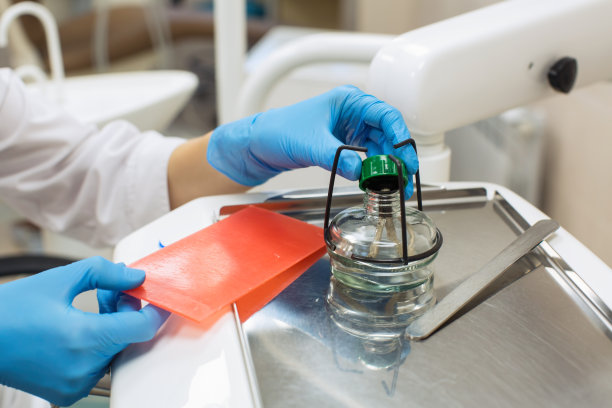Summary: Dental implantation is a crucial procedure for restoring oral health and improving quality of life for individuals with missing teeth. However, a successful implantation process requires careful planning and strict adherence to essential precautions. This article highlights key aspects that ensure the implants effectiveness, ranging from pre-operative assessments and treatment planning to post-operative care and patients lifestyle choices. Each of these factors plays a vital role in optimizing oral health outcomes and ensuring the longevity of dental implants. By addressing these critical steps, patients can significantly improve their chances of achieving a successful and sustainable dental implantation experience.
1. Comprehensive Pre-Operative Assessment

The success of dental implants begins with a thorough pre-operative assessment. Dental professionals must conduct a comprehensive evaluation of the patients medical history, including any chronic conditions that might affect healing. Conditions such as diabetes or cardiovascular diseases can complicate the implantation process, necessitating special management strategies.
Additionally, imaging studies such as X-rays or 3D scans are crucial for assessing bone quality and quantity. These images help the dentist determine if the patient has sufficient bone to support the implant. If there is significant bone loss, additional procedures such as bone grafting may be required to ensure a robust foundation for the implant.
Moreover, patient education during this assessment phase is critical. Dentists should discuss the procedure, expected outcomes, and any potential risks involved. Proper communication helps in managing patient expectations and enhancing their understanding, ultimately leading to better cooperation and preparedness for the procedure.
2. Detailed Treatment Planning and Customization
Once the pre-operative assessment is complete, the next step is meticulous treatment planning. Each patients oral structure is unique; thus, customization of the treatment plan is essential for success. The dentist should consider factors such as the type of implant, the position of existing teeth, and the patients specific aesthetic desires.
Collaboration among dental specialists, including oral surgeons, periodontists, and prosthodontists, is often needed for optimal results. Careful planning involving these experts ensures that all aspects of the implant process are adequately addressed, reducing the risk of complications.
In addition to technical aspects, employing advanced technologies, such as computer-guided implant surgery, can further enhance precision in placing implants. Using these innovative tools fosters a minimally invasive approach, resulting in less discomfort and quicker recovery for the patient.
3. Rigorous Post-Operative Care and Monitoring
After the dental implant procedure, rigorous post-operative care becomes vital. Initial recovery may include managing pain and swelling, which should be guided by post-operative instructions provided by the dentist. Patients must adhere to prescribed medications and attend follow-up appointments to monitor the healing process.
During this recovery period, maintaining proper oral hygiene is critical. Patients should be educated about gentle cleaning techniques to avoid disturbing the surgical area while ensuring that bacteria are effectively managed. This will help in preventing infections that could jeopardize the implants success.
Furthermore, lifestyle factors should be discussed in-depth. Patients must avoid smoking, as it can decrease blood flow to the gums and impede healing. Alcohol consumption should also be limited, as it may affect the immune system and overall health, reducing the implants chances of success.
4. Long-Term Commitment to Oral Health
Ensuring a successful dental implant process is not just about following the precautions during the immediate timeline; it also requires a long-term commitment to oral health. Regular dental check-ups are essential to monitor the status of the implant and surrounding tissue. These appointments allow for early detection of any potential issues before they escalate.
Additionally, patients should practice excellent oral hygiene, including brushing twice daily and flossing. Using antimicrobial mouth rinses can also help in maintaining overall oral hygiene, protecting both the implants and natural teeth.
Lastly, being aware of systemic health conditions and their management contributes to better oral health. Patients should maintain open lines of communication with their healthcare providers regarding any changes in their health, which could affect their implants. This proactive approach ensures the longevity and functionality of dental implants over time.
Summary:
In conclusion, ensuring successful dental implantation involves comprehensive pre-operative assessments, meticulous treatment planning, vigilant post-operative care, and a long-term commitment to oral health. Patients who adhere to these essential precautions significantly enhance their chances of experiencing optimal oral health outcomes. By understanding the intricacies of the dental implant process and following professional guidance, individuals can look forward to renewed confidence and improved quality of life.
This article is compiled by Vickong Dental and the content is for reference only
Vickong Dental
Vickong Dental is a large medical group established in Hong Kong in 2008 by professors from well-known medical universities in Guangdong and Hong Kong, as well as medical doctors from key national '985' universities (including Master's supervisors and senior professors). The chain of branches brings together expert dentists with PhDs and Master's degrees from Hong Kong and Mainland China, committed to providing high-quality dental treatment.
"Vickong Dental Practices the University Motto of 'Healing and Serving Society,' with a Stable Operation for Sixteen Years. It Has Been honored with Hong Kong Enterprise Leaders's Choice,' and is a Global Trusted Implant Center for the Nobel Implant System. Recommended by Hong Kong Metro Broadcast and Guangdong Television, it Serves Customers from Over Thirty Countries and Regions, Gaining the Trust and Favor of Citizens from the Guangdong-Hong Kong-Macau Greater Bay Area and Surrounding Cities.

Thousands of customers' unanimous praise
The most recognized and highly recommended dental service by customers in the Guangdong-Hong Kong-Macau Greater Bay Area
We Ensure You Receive Detailed Care and Attention Here
Hong Kong standards, Shenzhen prices, Your Trusted English-speaking dentists

Vickong Dental Medical-Grade Instrument Disinfection Process
Vickong Dental Medical-Grade Instrument Disinfection Process

Vickong Dental Chain: A Warm and Comfortable Environment for Treatment






Appointment Hours

Q&A
Why choose Vickong Dental?
Vickong Dental practices the university motto 「Medicine to Benefit Society」, with each branch bringing together highly qualified dentists with doctoral and master’s degrees from Hong Kong and the Mainland, and has maintained seventeen years of steady operation。Recipient of 「2024 Hong Kong Enterprise Leaders Brand」, 「2025 Hong Kong Enterprise Leaders Brand」, a Nobel Biocare Global Trusted Implant Center, and a brand recommended by Metro Radio Hong Kong and Guangdong TV。
To date, we have served customers from more than thirty countries and regions,earning exceptionally high word-of-mouth recognition and trusted recommendations from residents across the Guangdong-Hong Kong-Macao Greater Bay Area and surrounding cities
We have eight major branches in Zhuhai、Shenzhen,and a consultation and service assurance center in Hong Kong,so you can book a free consultation at any time for any questions,which is very reassuring.
If I do not accept the quotation after the CT scan, will I be charged??
No! As long as the actual treatment has not started, you will not be charged any fees.
Will there be any additional charges during the treatment process?
No, there won’t be any additional charges. Before treatment begins, we will clearly explain the treatment plan and its corresponding fees. Only after the patient agrees and signs the consent form will we proceed with the dental service.
Can I pay in Hong Kong dollars?
Yes. Vickong Dental accepts payment in Hong Kong dollars. The amount will be converted based on the exchange rate of the day, and the applicable rate will be clearly communicated to you in advance.
Can I reschedule my appointment at any time?
Yes. Please contact us via **WeChat** or **WhatsApp** as early as possible, providing your original appointment time and details, along with your preferred new date and time slot for rescheduling.













